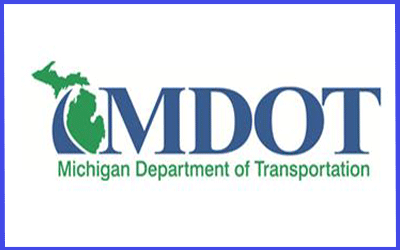
by orionontv | Nov 26, 2024 | Feature Writers, High School Sports
Written Saturday November 23rd at 3:50 PM

The 2024 OAA football season has came to an end. Here are the shortcomings for each team in the OAA.
West Bloomfield: The Lakers had an up and down year but had a really tough matchup against Novi Detroit Catholic Central in the district finals. West Bloomfield turned the ball over twice which led to Shamrocks touchdowns in a 41-14 loss. The Lakers lose a lot of proven talent but they have the majority of their defense coming back along with Jamal Shakesphere. It will be very interesting to see what the Lakers have next season.
Lake Orion: The Dragons seen their season come to an end after a disappointing 34-16 loss to Clarkston in the first round. Lake Orion lost to a better team and was outplayed in every single fashion. The Dragons also have a Clarkston problem. The Wolves are 14-3 in their last 17 games against the Dragons. Lake Orion’s offense scored 23 points in the last two weeks. The Dragons lose a lot of proven experience but it’s clear for Coach Chris Bell and his program they need to hit a reset button this offseason.
Clarkston: The Wolves will have a ton of questions this offseason after a shocking 41-0 loss to Adams in the district finals. Clarkston has the majority of their team coming back next season but this has to be a humbling experience and something that Wolves fans and especially Coach Justin Pintar don’t ever want to feel again.
Adams: The Highlanders had a great run getting to the Division One State Semifinals but fell 27-7 to Hudsonville. Adams has a strong junior class coming back with Nolan Farris most likely going back to wide receiver with Ryland Watters at quarterback along with Cam Darwood at wide reciever coming back for Coach Tony Patritto. They lose Matteo Humbert which will be a tough loss with the rushing attack. The defense will be stout as well. Program strength is strong with Adams, they will be back next season.
Oxford: The Wildcats had a great season winning the Red (First league title since 2007 when they were in the Flint Metro League) and beating Davison in the first round but fell 29-7 to Grand Blanc in the district finals. Oxford loses a ton of proven experience but they have Eli Tabert and Jack Hendrix coming back next season for Coach Zach Line. Program strength will be something to watch for the Wildcats next season as well.
Harper Woods: The Pioneers made it back to the Division Four State Semifinals but fell to a really good and motivated Goodrich program 28-14. Harper Woods loses Colby Bailey and others to graduation. They have Nate Rocheleau, DeAndre Bidden, and Dakota Guerrant coming back for Coach Rob Oden. Program strength looks solid for Oden but this will be a tough pill to swallow. The Pioneers will be back next season.
Groves: The Falcons went unbeaten until they had a heartbreaking 28-27 overtime loss to Orchard Lake St. Marys in the Division Two State Semifinals denying a trip to Ford Field for the fourth time. People are going to question Coach Brendan Flaherty’s decision to go for two instead of the extra point. There will be so many what if’s. Groves loses a ton of proven experience. It will be really interesting to see what happens with Coach Brendan Flaherty’s team heading into next season losing a ton of experience.
Stoney Creek: The Cougars seen their season come to an end in the first round falling 44-14 to Adams for the second time in three weeks. They lose Spencer Beckeman and Sam Fogler to graduation but Coach Rick Powell has program strength on his side with his sub-varsity programs. Stoney Creek is back to where they need to be heading into the offseason.
Rochester: The Falcons finished the season strong with a 45-8 win over Walled Lake Northern. Rochester was the better team that night finishing the season at 4-5. There will be a ton of what if’s for Coach Erik Vernon and his program heading into the offseason but winning two games to finish is a start heading into next season.
Southfield Arts and Tech: The Warriors had a really disappointing season concluding against Detroit Renaissance winning 26-22 to close at 2-7 this season. Southfield Arts and Tech will be a team to watch for Coach Keith McKenzie this offseason.
Farmington: The Falcons had a tough matchup with Orchard Lake St. Marys falling 51-0 in the district finals at Falcon Field. Farmington had a strong season getting to the postseason and beating Lakeland in the process. Coach Jason Albright has this program heading in the right direction and will be a team to watch this offseason.
North Farmington: The Raiders had a rough 42-7 loss to Orchard Lake St. Marys at Ron Holland Field in the first round. North Farmington had a rebirth winning the Blue but they were dealt a terrible fate by the MHSAA getting the Eaglets first. Coach Jon Herstein has this program heading in the right direction.
Oak Park: The Knights had a season of what ifs winning 32-21 over Bloomfield Hills on Friday night. You have to wonder what if Oak Park was in Division Three and not in Division Two, it could have been different. There will be a ton of questions for Coach Greg Carter and his team come this offseason.
Troy: The Colts had a tough 35-7 loss to North Farmington keeping them out of the postseason for a second straight season. Troy loses a lot of proven talent and they will be a different team next season for Coach Chris Frasier. There will be a ton of questions this offseason.
Troy Athens: The Red Hawks had a rough season finishing at 2-7 but went out on top with an impressive 42-7 win over Fraser. There will be some questions heading into the offseason for Troy Athens about the direction of the program but for Coach Tom Cook it’s about looking forward to the offseason.
Seaholm: The Maples had a tough matchup against arch rival Groves in the district finals. Seaholm was no match falling for the second time in three weeks 36-7 in the district finals. The Falcons outscored the Maples 71-7 in both meetings this season. Seaholm really overachieved this season. They will be very interesting to watch this offseason.
Bloomfield Hills: The Blackhawks have a lot of questions heading into next season after a 32-21 loss to Oak Park. Bloomfield Hills saw some strides at times offensively but they struggled when they played good teams. There will be questions for Coach Dan Loria after finishing 1-8 this season.
Avondale: The Yellow Jackets had a tough matchup in the district finals against Walled Lake Western. They kept it close but they fell apart falling 42-0 to the Warriors for the second straight year. Avondale has been outscored 92-22 in the last two years against Walled Lake Western. If Coach Bob Meyer wants to have a deep postseason run it’s clear he has to figure a way to get by Walled Lake Western.
Ferndale: The Eagles had a great season getting to the postseason after winning 10-0 over Utica Ford II in week nine. They fell 49-14 to Groves in the first round of the postseason. Ferndale loses a ton of proven experience and Coach Eric Royal has stepped down so it will be a different team next season for sure.
Berkley: The Bears had an improving year under first year coach Casey Humes despite falling 45-0 to Madison Heights Lamphere finishing at 2-7 this season. Berkley should keep improving heading into next season under Humes. They are in a much better place than they were last season.
Royal Oak: The Ravens kept Clawson from making the postseason with a 21-7 win finishing the season at 3-6. Royal Oak should be a very interesting to watch in the future. They had some great and not so great moments this season. It will be very interesting to see how Coach Collin Campbell handles this offseason.
Pontiac: The Phoenix closed the season with a 28-0 loss to Detroit Lincoln Park Academy finishing the season at 1-8. Depth was an issue for Pontiac all season. They lose a ton of talent including quarterback Kanye Donaldson. It will be very interesting to see what Coach Wendell Jefferson does this offseason.

by orionontv | Nov 26, 2024 | Feature Writers, High School Sports

Written Saturday November 23rd at 3:45 PM
Hudsonville 27, ADAMS 7. The Highlanders have had chances but mistakes were the story at Okemos on Saturday afternoon. They had an opportunity to go up 14-7 but fumble at the one yard line cost Adams their second touchdown. Nolan Farris found Tommy Oliver for a 39 yard passing touchdown to respond to Hudsonville’s 80 yard touchdown drive to start the game. The Highlanders went for it on fourth down and couldn’t convert which led to the Eagles touchdown. Hudsonville got an interception off a tip ball to close the third quarter which led to another rushing touchdown. Hudsonville quarterback Griffin Baker had three rushing touchdowns and a passing touchdown for the Eagles. Adams had chances as mentioned but they made too many mistakes in this game which denied them a trip to Ford Field.
Orchard Lake St. Mary’s 28, GROVES 27. The Falcons had a really tough and heartbreaking loss at West Bloomfield on Saturday afternoon. Groves answered every Orchard Lake St. Marys drive with Noah Sanders 50 yard rushing touchdown tying the score at 7-7. Ryan Counts had a seven yard pass to Wyatt Shortridge to tie the score at 14-14. Sanders added his second rushing touchdown for Groves tying it at 21-21. Chris Little got a huge interception for the Falcons giving them a chance to take the lead. He has two picks so far for Groves but they couldn’t convert and the game to overtime. Sanders added his third touchdown of the game in overtime but missed the two point try which was a really interesting decision to go for two. The miss proved costly as Bryson Williams scored his second touchdown of the game giving the Eaglets the tie and the extra point gave them to win and denying the Falcons a trip to Ford Field. Big plays hurt Groves and a questionable call by Flaherty to go for two proved costly. There are going to be a ton of what ifs in this game.
Goodrich 28, HARPER WOODS 14. The Pioneers had a rough time with a motivated Goodrich team on Saturday afternoon at Stoney Creek. Chase Burnett three rushing touchdowns for the Martians. Harper Woods made a really questionable call going for it on fourth and one from their own 30 yard line which led to the winning score for Goodrich. The Martians defense shut the high octane Pioneers offense down holding them to 14 points. Harper Woods has a lot of proven experience coming back next season but this is a tough pill to swallow.

by orionontv | Nov 26, 2024 | Agriculture
For immediate release: November 26, 2024
Media contact: Jennifer Holton, 517-284-5724
Thanksgiving Food Safety: Tips to Enjoy a Safe Holiday Feast
Lansing, MI – As Thanksgiving approaches, families across the country are busy planning their holiday meals. While preparing the perfect turkey and all the trimmings can be exciting, food safety is critical to ensure your celebration remains joyful and healthy. Follow these essential tips for a safe and stress-free Thanksgiving.
“Thanksgiving is a time for gathering with family and friends to celebrate and give thanks for the blessings and bounty of the harvest,” said Tim Slawinski, director of the Michigan Department of Agriculture’s Bureau of Food Safety and Animal Health. “As you celebrate, however, it’s important to take a few precautions to keep foodborne illness off your guest list.”
Here are a few simple steps you can take to assure your holiday feast is safe:
Planning Ahead
Preparation: Store your food at the correct temperatures before preparation. Make sure the refrigerator and freezer are set to 40°F or below and 0°F, respectively. Make room for holiday meal items and leftovers by clearing outdated foods from your refrigerator. Make sure your refrigerator shelves and storage drawers are clean by washing and wiping them with hot, soapy water and letting them air dry.
Thawing Your Turkey Safely
The USDA outlines three safe methods for thawing your turkey:
- Refrigerator Thawing: Allow 24 hours for every 4-5 pounds of turkey. For example, a 16-pound turkey will take four days to thaw.
- Cold Water Thawing: Submerge the turkey in cold water, changing the water every 30 minutes. Allow 30 minutes per pound.
- Microwave Thawing: Check your microwave’s manual for specific instructions. Cook the turkey immediately after thawing.
Unsafe methods, such as thawing on the counter or in the garage, should be avoided under all circumstances.
Cooking Tips
- Cook to the Right Temperature: Use a food thermometer to ensure your turkey reaches an internal temperature of 165°F. Check the thickest part of the breast, thigh, and stuffing (if cooked inside the turkey).
- Avoid Cross-Contamination: Wash hands, utensils, and cutting boards thoroughly after handling raw meat. Use separate tools for raw and cooked foods.
- Stuffing Safety: Cook stuffing in a separate dish or ensure it reaches 165°F if prepared inside the turkey.
Leftovers Made Safe
- Refrigerate leftovers within two hours of cooking to prevent bacteria growth.
- Store leftovers in small, shallow containers for quick cooling.
- Reheat to 165°F before serving and consume refrigerated leftovers within 3-4 days. For longer storage, freeze leftovers and use within 2-6 months for best quality.
By following these tips, you can focus on enjoying a delicious Thanksgiving meal without worrying about foodborne illnesses.
For additional food safety tips, visit www.Michigan.gov/foodsafety or the USDA Health and Safety page. |

by orionontv | Nov 22, 2024 | Transportation
FOR IMMEDIATE RELEASE MEDIA CONTACT
November 21, 2024 Diane Cross
CrossD2@Michigan.gov
US-24 (Telegraph Road)/M-102 (8 Mile Road) diverging diamond interchange expected to open soon in Metro Detroit
DETROIT/SOUTHFIELD, Mich. – The Michigan Department of Transportation (MDOT) project to modernize the US-24 (Telegraph Road)/M-102 (8 Mile Road) interchange to a diverging diamond interchange (DDI) is wrapping up, with the new DDI expected to be in operation sometime this weekend or early next week. This is the first DDI in this part of Metro Detroit.
While the majority of work for this project is expected to be completed by the end of the year, crews will return next spring for landscaping and punch list work.
DDIs allow for safer driving as they eliminate loop ramps, reduce conflict points and delays, and produce lower traffic speeds. MDOT has already installed DDIs at the I-96/Cascade Road interchange in Grand Rapids, the I-75/University Drive interchange in Auburn Hills, and the I-94/US-127/West Avenue interchange in Jackson, among others.
US-24 (Telegraph Road) will be closed in each direction at M-102 (8 Mile Road) from 7 p.m. Friday, Nov. 22, to 6 a.m. Monday, Nov. 25, while crews continue to install supports for overhead signs, complete traffic signal and under-bridge lighting, place pavement markings and begin work on traffic control islands to help direct drivers through the new interchange. Traffic will be detoured onto M-102 (8 Mile Road) to the first turnaround, then back to US-24 (Telegraph Road) via M-102 (8 Mile Road).
Beginning at 6 a.m., Monday, Nov. 25, if weather cooperates, northbound and southbound US-24 (Telegraph) will have a combined 18 new traffic signals at M-102 (8 Mile Road) in operation to control traffic through the newly modernized interchange, with left turns from US-24 (Telegraph Road) to M-102 (8 Mile Road).
As part of the DDI design, US-24 (Telegraph Road) now shifts first left and then right under the M-102 (8 Mile Road) bridge to permit left turns from US-24 (Telegraph Road) to M-102 (8 Mile Road) without encountering oncoming traffic.
Initially, there will be only two lanes open for northbound and southbound US-24 (Telegraph Road) at M-102 (8 Mile Road) until mid-December when traffic will reopen to four lanes in each direction.
In addition to modernizing this interchange to improve efficiency and enhance safety, MDOT invested $54 million over two years to rebuild 1.4 miles of US-24 (Telegraph Road) between M-5 (Grand River Avenue) to north of M-102 (8 Mile Road). Work also included improving five bridges, drainage and water main relocation work, sidewalk ramp improvements compliant with the Americans With Disabilities Act (ADA), replacing signs, and traffic signal and lighting work from the M-5 (Grand River Avenue) intersection to M-102 (8 Mile Road).
Based on economic modeling, this investment is expected to directly and indirectly support 653 jobs.








 Calling all fans of Michigan’s state parks and recreation areas! You’re invited to the special two-part “Inside Michigan State Parks” webinar series highlighting a few of the exciting projects in the works around the state.
Calling all fans of Michigan’s state parks and recreation areas! You’re invited to the special two-part “Inside Michigan State Parks” webinar series highlighting a few of the exciting projects in the works around the state.
 Did you know that turkeys not only gobble, they also cluck and purr? And in addition to flying, wild turkeys can even swim when they need to! Thanks to collaborative conservation, these incredible birds are thriving across Michigan.
Did you know that turkeys not only gobble, they also cluck and purr? And in addition to flying, wild turkeys can even swim when they need to! Thanks to collaborative conservation, these incredible birds are thriving across Michigan.
 Michiganders can help by volunteering with the DNR on
Michiganders can help by volunteering with the DNR on  While we don’t yet know what winter has in store, state-designated snowmobile trails are open Dec. 1 to March 31, and trail grooming occurs when there is enough snow on the ground. Now is a good time to prep for the season (think snow!), starting with purchasing your snowmobile trail permit.
While we don’t yet know what winter has in store, state-designated snowmobile trails are open Dec. 1 to March 31, and trail grooming occurs when there is enough snow on the ground. Now is a good time to prep for the season (think snow!), starting with purchasing your snowmobile trail permit.
 Here is ride-related info to keep in mind:
Here is ride-related info to keep in mind:
 Now that most trees across the state have dropped their leaves, tree maintenance may not be top of mind. When it comes to your oak trees, however, you might want to reconsider!
Now that most trees across the state have dropped their leaves, tree maintenance may not be top of mind. When it comes to your oak trees, however, you might want to reconsider!
 See more pictures by
See more pictures by 
